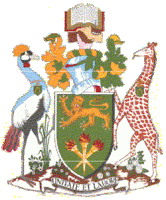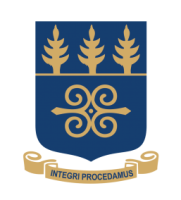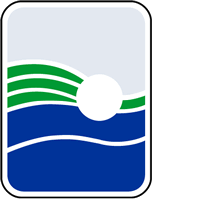African aquaculture is growing rapidly. Tilapia and catfish are the two most important farmed fish species in Africa. Additionally, rainbow trout farming is an important part of the Kenyan aquaculture industry. Compared to salmon and shrimp, little attention and research investments have been made to better understand disease epidemiology and control mechanisms in these cultured fish groups. With increased intensification and the resultant proliferation of fish diseases, many African countries are now realizing the importance of biosecurity governance and building better aquatic animal health research capacity and management to support the sustainable development of aquaculture in the continent.
International partnerships and collaboration with expert institutions can facilitate the transition for African countries to develop and implement better biosecurity governance. This is a joint project between WorldFish and the Norwegian Veterinary Institute that will utilize research expertise (aquaculture, aquatic animal health, epidemiology, molecular diagnostics, vaccinology) networks, global and local partnerships including the College of Basic and Applied Sciences (CBAS) of the University of Ghana (UG) and the College of Agriculture & Veterinary Sciences (CAVS) of the University of Nairobi (UN), to support research and education in Sub-Saharan Africa in aquatic animal health management under the broader framework of aquatic food systems and One Health and to achieve three higher-level outcomes listed below.
In-person training at FAIH
View photos
Ghana Activities
View photos
Kenya Activities
View photos
Key stories
- Academic trip for MSc. Fish Science Students to Cavarino Farm, Narok County
- Contributing to sustainable aquaculture development in Africa
- Aquaculture Africa (AFRAQ21) - WorldFish Research and Development in Africa: Success stories & lessons learned
- Building a microlearning curriculum at WorldFish
- WorldFish highlights aquatic foods for Africa’s food systems transformation
- Two stories on youth in aquatic food systems featured the accounts of MSc students Mercy Matuma Hamisi from Kenya and Philip Kwasi Banini from Ghana:
- Highlights of the participation of WorldFish and AHA project’s MSc students at the 2023 Africa Food Systems Forum (AGRF) in Dar es Salaam, Tanzania published:
- A story on the success in Advanced Molecular Diagnostics and Sequencing to Manage Diseases in Aquaculture
Peer-reviewed journal articles published under the AHA project
Peer-reviewed Journal Articles published by AHA-supported MSc Students in Kenya and Ghana
- Effects of Different Dietary Protein Sources on Water Quality Parameters and Growth Performance of Nile Tilapia (Oreochromis niloticus) Fingerlings. Journal of Aquaculture, Marine Biology & Ecology, 2023.
- Relationship between Water Quality Parameters and Parasite Infestation in Farmed Oreochromis niloticus in Selected Rift Valley Counties, Kenya. Aquaculture Research, 2024.
- Management practices and risk factors associated with parasitic infestations in farmed Nile tilapia in Bomet and Kericho counties, Kenya. International Journal of Fisheries and Aquatic Studies, 2024.
- Prevalence of potential pathogenic and zoonotic aerobic bacteria in wild and farmed Oreochromis jipe, Oreochromis niloticus and source water in Taita-Taveta County, Kenya. International Journal of Fisheries and Aquatic Studies, 2024.
- Prevalence and intensity of ectoparasites in Nile tilapia hatcheries in Homa Bay County, Kenya. International Journal of Fisheries and Aquatic Studies, 2024.
- Rethinking Freshwater Cage Aquaculture: A Case in Ghana. Water, 2024.
- In vitro and in vivo activity of herbal and chemical treatments against Saprolegnia ferax—A causative agent for saprolegniasis. Aquaculture International, 2024.
- Parasites of Farmed and Wild Tilapine Fishes From Selected Farms and Lake Jipe in Taita Taveta County, Kenya. Aquaculture, Fish and Fisheries, 2025.
- Conventional and molecular characterization of an Aeromonas isolate recovered from an aquaculture farm with high fish mortality in Kenya. International Journal of Fisheries and Aquatic Studies, 2025.
- Lethal Dose, Clinical Signs, Gross and Microscopic Lesions Induced by Aeromonas veronii Biovar sobria A4 Strain in Experimentally Challenged Nile Tilapia (Oreochromis niloticus). Veterinary Medicine International, 2025.
Peer-reviewed journal articles published by partner institutions supported by the NORAD AHA Project
- Fish diet supplemented with Yemeni Zeolite improves growth performance and reduces lead toxicity in Nile tilapia (Oreochromis niloticus). Aquaculture Research, 2021.
- Molecular characterization, virulence profiling, antibiotic susceptibility, and scanning electron microscopy of Flavobacterium columnare isolates retrieved from Nile tilapia (Oreochromis niloticus). Aquaculture International, 2022.
- Genetic characterization and antimicrobial profiling of bacterial isolates collected from Nile tilapia (Oreochromis niloticus) affected by summer mortality syndrome. Journal of Fish Diseases, 2022.
- Vibriosis outbreaks in farmed Nile tilapia (Oreochromis niloticus) caused by Vibrio mimicus and V. cholerae. Aquaculture International, 2022.
- Bridging knowledge gaps in fish health management through education, research, and biosecurity. Frontiers in Sustainable Food Systems, 2023.
- Onion (Allium cepa) improves Nile tilapia (Oreochromis niloticus) resistance to saprolegniasis (Saprolegnia parasitica) and reduces immunosuppressive effects of cadmium. Aquaculture International, 2023.
- From the basics to emerging diagnostic technologies: What is on the horizon for tilapia disease diagnostics? Reviews in Aquaculture, 2023.
- A multiplexed RT-PCR assay for nanopore whole genome sequencing of Tilapia lake virus (TiLV). Scientific Reports, 2023.
- Understanding Aquaculture Biosecurity to Improve Catfish Disease Management in Ogun and Delta States, Nigeria. Aquaculture, 2024.
- Review of quorum-quenching probiotics: A promising non-antibiotic-based strategy for sustainable aquaculture. Journal of Fish Diseases, 2024.
- Multiplex polymerase chain reaction (PCR) with Nanopore sequencing for sequence-based detection of four tilapia pathogens. PeerJ, 2025.
- Microbiome Dynamics in Tank- and Pond-Reared GIFT Tilapia. bioRxiv, 2024.
WorldFish Aquatic Animal Health Online Resources for Research and Education
WorldFish’s online courses developed on the Learn.ink platform:
- Aquatic Animal Health: Remote training courses on Learn.ink platform
- Aquaculture survey with ODK
- Fish syndromic surveillance
- Fish farm biosecurity
- List of microcourses under the Fish Sampling curriculum:
- Data collection with SurveyCTO Collect
- Antimicrobial usage survey for aquatic systems
- Epizootic Ulcerative Syndrome (EUS)
- Principles of conducting social surveys
- Epizootic Ulcerative Syndrome (EUS) – Learn.ink course
- Tilapia Lake Virus (TiLV) – Learn.ink course
- Basic insight on Molecular Diagnostics in aquaculture – Learn.ink course
Guidelines on how to access Learn.ink courses and digital survey tools:
- End user guidelines : How to sign up and access the course on aquaculture survey with ODK on Learn.ink
- End user guidelines: How to sign up and access the fish syndromic surveillance course on Learn.ink
- End user guidelines: How to sign up and access the fish farm biosecurity course on Learn.ink
- End user guidelines: How to sign up and access the fish sampling microlearning curriculum on Learn.ink
- End user guidelines: How to access digital surveys for aquaculture using ODK Collect mobile app and KoboToolbox
- Content creator guidelines: How to manage digital surveys for aquaculture using KoBoToolbox and ODK Collect mobile app
Quick Fish Sampling Guides for Disease Diagnostics:
- Sampling materials for fish disease diagnostics
- Wet mount sampling guide (for ectoparasites & fungi)
- Microbiome sampling guide
- Blood sampling guide
- Bacteriology sampling guide
- Molecular and Virology diagnostics sampling guide
- Histology sampling guide
- Quick protocol for antimicrobial susceptibility testing (AST) in aquatic animal species from aquaculture and fisheries
Other online resources:
- A step-by-step guide to conducting digital surveys for aquaculture performance assessment
- Aquatic Animal Health Package of Practices (PoPs)
- Aquatic Animal Health Package of Practices: Fish epidemiology and health economics
- Aquatic Animal Health Package of Practices: Syndromic surveillance and disease outbreak characterization
- Aquatic Animal Health Package of Practices: Fish sampling for disease diagnostics
- Aquatic Animal Health: Online fish health and water quality monitoring tool
Higher level outcomes include:
- Research capacity on aquatic animal health management in Sub-Saharan Africa countries improved
- Institutional capacity and learners’ knowledge and practical skills on aquatic animal health to improve the aquaculture related education services and extension capacity in Sub-Saharan Africa countries enhanced
- New knowledge on aquatic animal health in aquatic food systems in the framework of one health and one food systems widely shared in SAA through sustainable networking.
Target groups are fish farmers and hatchery operators, University students , Academic and research institutions, Extension services, national competent authority representatives, Donor agencies and project implementing agencies in Sub-Saharan Africa, Regional and international agencies involved in promoting aquatic animal health management, biosecurity governance and One Health.
The expected outcomes for the target groups of the project are:
- Research outcomes
- Research/Knowledge gaps on the aquatic animal health management in the selected countries (Ghana and Kenya) identified and addressed/filled
- Research findings and new knowledge on aquatic animal health are availed by relevant stakeholders in Ghana/Kenya and other countries
- Education outcomes
- State of the art educational modules on aquaculture and aquatic animal health for implementing regular face to face and online virtual training programs for from WorldFish Fish for Africa Innovation Hub (FAIH), based in Abbassa developed and available
- Availability and accessibility of countries to training programs on aquaculture and aquatic animal health management increased
- Networking outcomes
- Dynamic and operational networking mechanism developed for sharing of aquatic animal health knowledge amongst countries
- Effective coordination and MEL established to capture main highlights/achievements and create knowledge sharing
Project milestones
- 10 academic research institutions adopt appropriate research methodologies and tools and update their curriculum on aquatic animal health management
- 10 lessons learned on aquatic animal health management documented and shared with sub-Saharan African countries
- 15 education modules on aquatic animal health developed based on new research knowledge
- 50 learners engaged in aquaculture following training
- 50 extension agents/aquaculture service providers adopt better aquatic animal health management practices






